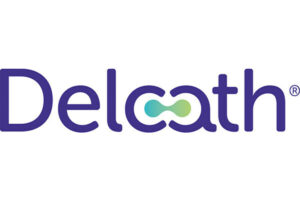 Delcath Systems, an interventional oncology company focused on the treatment of primary and metastatic cancers of the liver, have announced the publication of an article entitled ‘Selective internal radiotherapy (SIRT) and chemosaturation percutaneous hepatic perfusion (CS-PHP) for metastasized uveal melanoma: A retrospective comparative study” in the peer-reviewed oncology journal Cancers.
Delcath Systems, an interventional oncology company focused on the treatment of primary and metastatic cancers of the liver, have announced the publication of an article entitled ‘Selective internal radiotherapy (SIRT) and chemosaturation percutaneous hepatic perfusion (CS-PHP) for metastasized uveal melanoma: A retrospective comparative study” in the peer-reviewed oncology journal Cancers.
CS-PHP utilises CHEMOSAT, Delcath’s proprietary European CE Marked hepatic delivery system (HDS), to administer high-dose chemotherapy (melphalan) to the liver, while controlling systemic exposure and associated side effects during a PHP procedure. Initial findings were previously presented on September 9, 2023 at the Cardiovascular and Interventional Radiological Society of Europe (CIRSE) 2023 annual meeting (9–13 September, Copenhagen, Denmark).


Uveal melanoma usually shows a liver-dominant metastasis spread and is often treated with liver directed therapies. This retrospective study compared two cohorts of patients with liver dominant uveal melanoma treated at the University Hospitals Tubingen, Germany with multiple cycles of either CS-PHP (N=28) or SIRT (N=34).
Patients included in the study were treated between December 2013 and February 2020. Allocation to treatment was determined by a multidisciplinary team.
Presence of extrahepatic disease at baseline favoured the SIRT group (68% and 41%, CS-PHP and SIRT, respectively), as did the hepatic tumour load (0–25%: 57% and 76%; 26%–50%: 29% and 24%; >50%: 14% and 0%, for CS-PHP and SIRT, respectively). Tumour responses were evaluated by consensus reading by two experienced radiologists.
Disease control rates (DCR) were 30% and 18%, for CS-PHP and SIRT, respectively. Median overall survival (mOS) was 516 days for CS-PHP and 300.5 days for SIRT. In a Cox regression model, there was a significant difference between SIRT and CS-PHP treatment, HR = 0.46, CI 95% (0.23; 0.93), p = 0.030.
An adjusted Cox regression analysis, including the variables age, sex, presence of extrahepatic metastasis and hepatic load at baseline, also showed a significant effect of choice of treatment, HR=0.32, CI 95% (0.14; 0.73), p=0.006.
Median progression-free survival (mPFS) was 408.5 days for CS-PHP and 127.5 days for SIRT; the adjusted Cox regression analysis showed a trend favouring CS-PHP (p=0.090).
When initially presented at CIRSE, Gerd Groezinger (University of Tübingen, Tübingen, Germany) stated “liver directed treatment, including transarterial radioembolization and CS-PHP, is a critical treatment modality for patients with metastatic uveal melanoma, given the longer overall survival seen in the CS-PHP cohort, we conclude that for metastatic uveal melanoma patients, CS-PHP might be the superior liver directed treatment option”.
“There is a scarcity of comparative studies between liver directed therapies. This peer reviewed publication authored by experienced investigators, supports that the PHP procedure, whether utilising melphalan delivered by Delcath’s CE Marked Chemosat or the US Food and Drug Administration (FDA) approved HEPZATO KIT, may be the preferred liver directed treatment option for patients with liver-dominant metastatic uveal melanoma,” said Vojo Vukovic, Delcath’s chief medical officer. “We remain committed to making this treatment option available to patients in the USA by the end of this year.”










